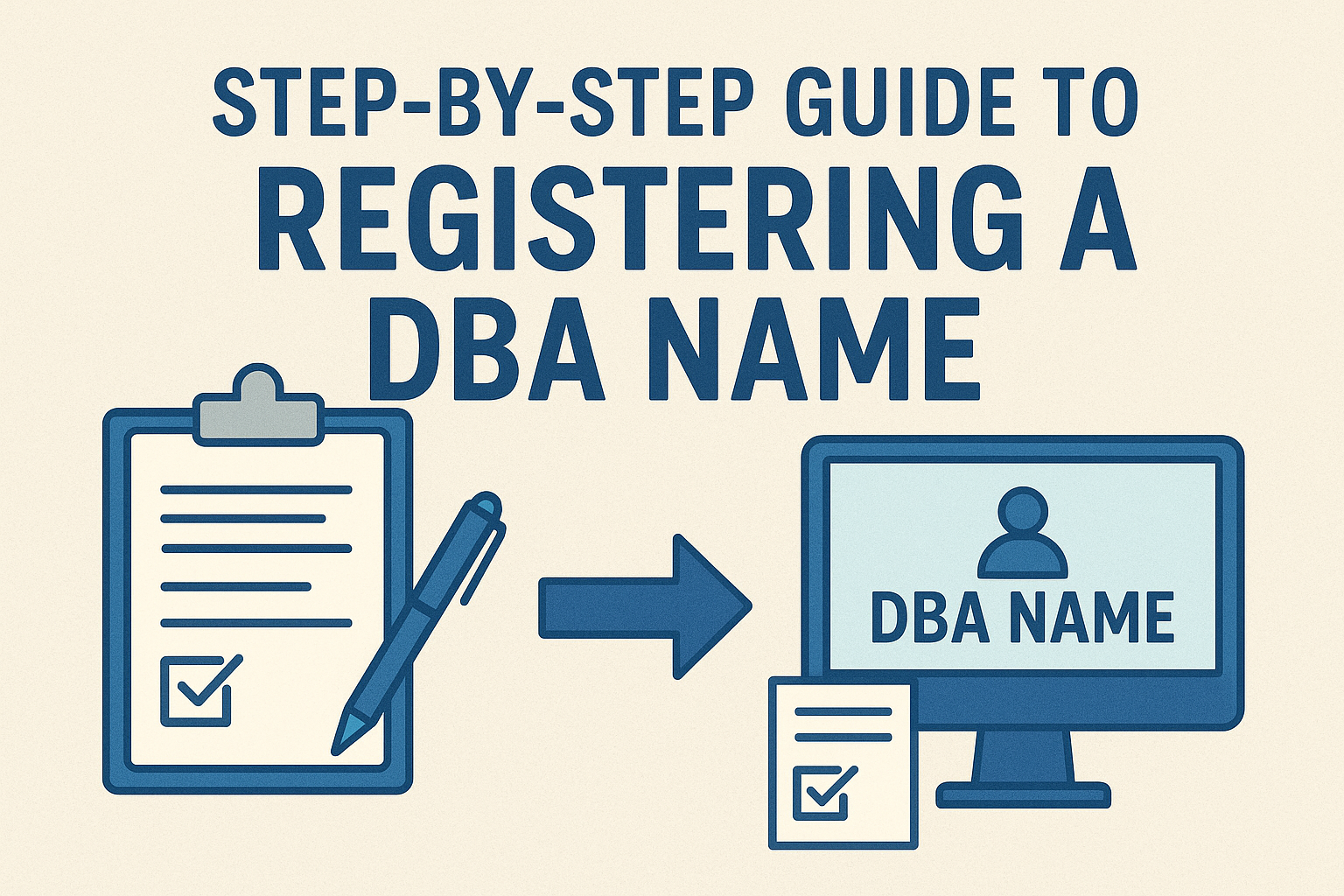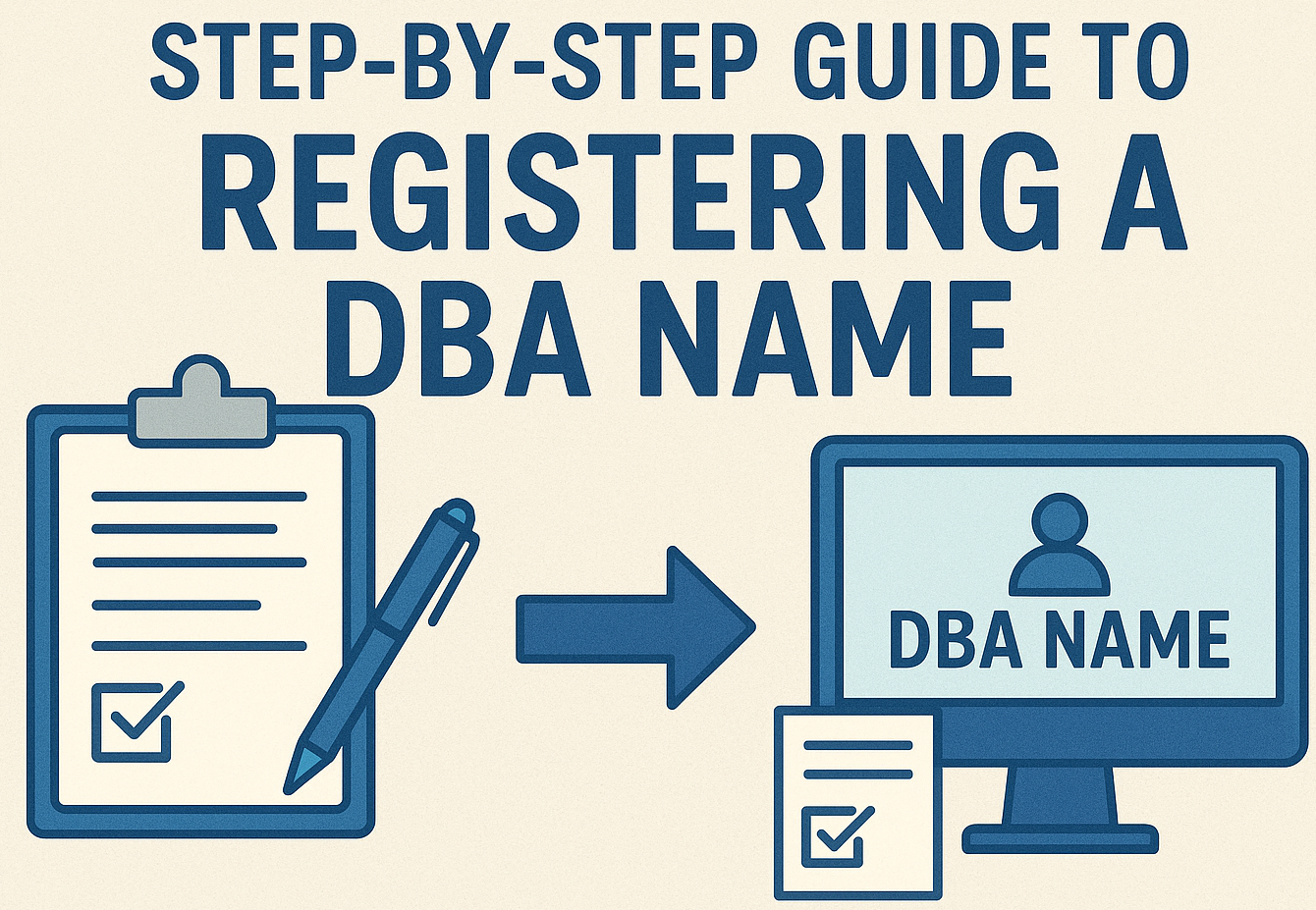
Businesses often operate under a name that doesn’t truly align with their purpose or resonate with their brand’s vibe. After choosing the right business structure, businesses must choose a name by which the world knows them.
That’s where a DBA, short for “Doing Business As,” comes in. Registering a DBA name allows you to operate your business under a different name without forming a new legal entity.
Whether you’re a freelancer expanding services, an LLC adding a new brand, or a small business owner opening a new branch, understanding the DBA filing process is essential.
This guide walks you through what a DBA is, why it matters, and exactly how to register one.
What is a DBA and Why is It Useful?
A DBA (Doing Business As) name, also known as an assumed business name, is an alias your business operates under. It doesn’t replace your legal entity; it simply lets you run business activities under a new name that reflects your brand, product, or niche.
For example, if “Smith Enterprises LLC” wants to open a café called “Sunrise Brews,” the company can register “Sunrise Brews” as its DBA. This creates a clear, market-friendly identity while maintaining the same legal ownership.
A DBA is especially useful for:
- Sole proprietors who want a professional business name without forming an LLC
- LLCs or corporations launching new divisions or services
- Businesses expanding into different regions or markets under unique names
If you’re unsure where to begin, professional Fictitious business name registration services can simplify the process and ensure your name complies with local regulations.
Benefits of Registering a DBA Name
DBA or Doing Business As registration does more than just give your business a new name; it also brings many tangible operational and branding benefits.
- Brand Flexibility: You can expand into new markets without creating separate legal entities.
- Enhanced Credibility: Customers see a name that matches your business identity, increasing trust and professionalism.
- Legal Compliance: Many states require public registration if you’re operating under any name other than your legal one.
- Simplified Banking and Contracts: A DBA allows you to open business bank accounts and sign agreements under your business name.
- Marketing Freedom: It helps you position new products or services more effectively under distinct brand identities.
These benefits make DBA registration one of the most practical steps for small businesses seeking flexibility and brand recognition. For expert guidance, you can always consult professionals like the CoConsultants who provide Business name registration help.
Step-by-Step: How to File a DBA in Your State
The DBA filing process is generally straightforward, but it varies slightly by state. Here’s a general step-by-step guide on how to register a DBA confidently:
- Choose Your DBA Name
Select a name that reflects your brand but isn’t already in use. Most states provide an online database where you can check name availability. - Verify State and County Requirements
Some states require DBA filings at the state level, while others need local (county) registration. Understanding where to file prevents processing delays. - Complete the DBA Application
You’ll need to fill out a form that includes your business’s legal name, address, and ownership details. Many states offer this online for faster filing. - Pay the Filing Fee
DBA registration fees vary depending on your location, typically ranging from $10 to $100. Keep a copy of your receipt for records and renewals. - Publish a Notice (if required)
Certain states require you to publish your DBA name in a local newspaper to notify the public of your new business name. - Maintain and Renew Your DBA
Most DBAs expire after 3-5 years and require renewal. Failing to renew can result in losing the right to use that name.
If you’d prefer a smooth, error-free filing experience, professional DBA filing assistance ensures every step of your fictitious name filing aligns with state and county regulations.
Where to File: County vs. State Requirements
Not all DBA filings are sent to the same location. The correct filing office depends on where your business operates and how it’s structured.
- Sole Proprietors and Partnerships: Usually file at the county clerk’s office where the business operates.
- LLCs and Corporations: Often file through the Secretary of State or an equivalent agency.
- Multi-State Businesses: May need to register their DBA separately in each state where the name will be used.
Understanding your filing level helps you stay compliant and avoid future penalties. Many states now allow online filing for faster turnaround times, but confirming jurisdiction first saves time and frustration.
Publishing and Renewal Requirements
Some states require a DBA publication to make your new business name a public record. This involves posting a notice in an approved local newspaper for a specified period, usually one to two weeks.
After publishing, you may need to submit proof, such as an affidavit of publication, to finalize your registration.
Renewal timelines vary by state but generally fall between three and five years. Marking renewal dates in advance prevents your DBA from expiring.
If this feels overwhelming, experts in DBA filing assistance can track your deadlines and manage renewal submissions on your behalf, ensuring uninterrupted business operations.
Common DBA Filing Mistakes to Avoid
Even a simple DBA filing process can lead to costly mistakes if overlooked. Here are some common pitfalls to watch out for when registering your DBA:
- Choosing a name already in use or trademarked
- Filing in the wrong county or jurisdiction
- Missing publication requirements
- Failing to renew on time
- Assuming a DBA provides legal protection (it doesn’t; it’s not a separate entity)
Avoiding these mistakes not only saves time but also keeps your brand legally valid. Working with professionals who handle Fictitious business name registration can help ensure every box is checked correctly.
Conclusion
Registering a DBA name gives your business the flexibility to grow, rebrand, and expand without starting from scratch. Whether you’re introducing a new product line or opening a separate branch, the process is straightforward once you understand the steps.
At The CoConsultants, we simplify every stage of business formation, from entity setup to DBA filing. Our people-focused approach ensures your registration meets all state and local requirements. Get started today with us and make your brand official with confidence.
Frequently Asked Questions
- Do I need a DBA if I already have an LLC?
Yes, if your LLC operates under a different name. A DBA lets your LLC use alternate brand names legally. - Can I use a DBA for multiple businesses?
No. Each business or brand name generally requires its own DBA registration to stay compliant with state rules. - Is a DBA the same as a trademark?
No. A DBA registers your business name for local use, while a trademark protects your brand nationally from unauthorized use. - How long does it take to process a DBA filing?
Processing times vary, but most DBA filings are approved within one to four weeks, depending on your state and filing method.




